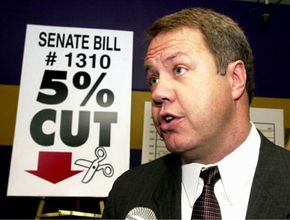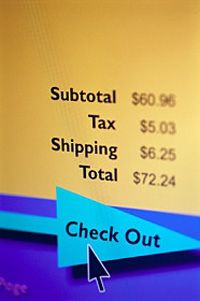That new TV ought to be able to fit into the family budget -- barely -- at the sale price of $579. Of course, that may not be the case once the store's cash register spits out the total and the price has soared to more than $600. What happened? It's simple: The dreaded state sales tax has struck again.
Actually, state sales tax charges don't really come as a surprise. They're more an unpleasant fact of life than anything else. Unless you live in one of the five states that don't have sales taxes, you're probably used to coughing up a set percentage in addition to the ticket price of most things you buy.
Advertisement
Forty-five U.S. states and the District of Columbia rely on levying sales taxes on most things residents and visitors buy to help keep the state government functioning. In those states, sales taxes are an important source of income. The revenue from sales taxes is an essential part of the state's general budget. It goes into the pot with revenues from other sources and helps keep the public schools, universities, courts, highway departments, state police, medical programs and all sorts of other institutions and activities running. Without sales taxes, those states would find it difficult -- if not impossible -- to stay in business.
And when times get tough and state income tax revenues are stagnant or go down, an increase -- even if temporary -- in the state sales tax often looks to state legislators like the easiest way to keep things in the black.
With the five exceptions, the U.S. seems to be unusually fond of state sales taxes as a way of raising money. Some other countries have sales taxes, and others have other forms of consumption taxes. But the United States uses sales taxes on a much greater scale than does any other modern, developed nation [source: Fox].
What are state sales taxes? And how much do people in various states pay? Read on to find out.
Advertisement




